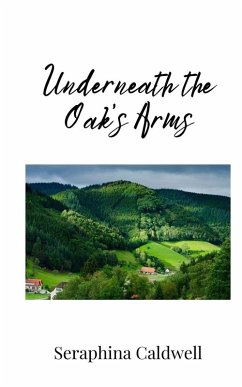
The Old World in His Arms
Collected Poems
Versandkostenfrei!
Versandfertig in 1-2 Wochen
29,99 €
inkl. MwSt.

PAYBACK Punkte
15 °P sammeln!
This volume showcases the life work of someone X.J. Kennedy has called "a major poet, commanding in his mastery." Excelling in both lyric and narrative modes, Jonathan Aldrich's poems from the 1960s and '70s seem fresh today. At the start, his voice was authoritative, lively, and unpretentious, his language both sensual and thoughtful. Aldrich's later poetry deepens his style and continues his engagement with themes such as the meaning of time and our responsibility to the past. This "collected poems" reprints in full the detective narrative Wade's Wait, along with generous selections from oth...
This volume showcases the life work of someone X.J. Kennedy has called "a major poet, commanding in his mastery." Excelling in both lyric and narrative modes, Jonathan Aldrich's poems from the 1960s and '70s seem fresh today. At the start, his voice was authoritative, lively, and unpretentious, his language both sensual and thoughtful. Aldrich's later poetry deepens his style and continues his engagement with themes such as the meaning of time and our responsibility to the past. This "collected poems" reprints in full the detective narrative Wade's Wait, along with generous selections from other books, including his extended lyrical sequence The Ring Road. It also gives us two long poems for the first time: Tivoli and Owed to Finnegans Wake. The final section, "New and Selected," draws mainly from his last books and unpublished late poems, poetry that reveals a writer involved in the lives of family and friends, generally hopeful, but sometimes reflecting on the fragility of our human world. Although Aldrich composed in many moods, his earliest published poem may stand as a demonstration of his ability to convey the drama of everyday life in language that speeds the mind forward. Using terms from the at times surprisingly violent lawn game croquet, he helps us experience a moment of social confusion, one that many writers know well. CROQUET LOVER AT THE DINNER TABLE (at a Writers' Conference) She passes muffins, orders the most remote and sudden relishes, comments on the one particular poem you meant to keep entirely undiscussed, or interrupts your train of silence with a stab of curiosity on what you plan to do next year if love or money won't come through, as if it were a game to find you out: to slam you out of court, to rout the field, dislodge the set-up shot, provoke your aim, suggest a change of rules until you feel immeasurably behind because her eyes are never wicketed, dead on nobody and poison to the last. Again and again in his poetry, Aldrich takes us to a familiar world suddenly illuminated in an unfamiliar light. In his early short sequence "A Shaker Girl (c. 1850)," he shows us the youthful struggles of a girl living a simple life in a Shaker village. "Walking Home," surely among the most striking sestinas ever composed, is a quiet meditation on social belonging and spiritual risk. The setting is foreign to us but the internal tension in the girl's narration is thoroughly recognizable. It isn't possible to speak of an "immature" stage in Aldrich's development as a publishing poet. The later poems do, however, broaden the scope of imaginative concern, tending to treat of whole lives rather than moments. Wade's Wait is a series of detective adventures, but it is also an assessment of Wade's life--or of three lives, as the third section (Pool Shot) is presented from the perspective of a man who has developed into Wade's secret enemy, and the fourth (The Shade Trees) from that of Wade's wife in the months prior to their engagement. In The Ring Road and Foam, Aldrich turns his attention to the details of his own life. With the perspicacity of a haiku artist, he finds meaning and amusement in scenes that seem to come back to him in a flash. Underneath this specificity--even in his treatment of Ted, the unlikable anti-hero of the long Pushkinian near-satire Tivoli--we sense the upswell of Aldrich's love of life. The final section of that poem is as open-hearted a vision as any crafty poet has devised. Here, as elsewhere, Aldrich's wisdom is at one with his joy.














